Dirt Rally is developed by British video game developer Codemasters using the in house Ego engine. Development began with a small team of individuals following the release of their 2012 video game Dirt: Showdown. Codemasters have emphasised a desire to create a simulation with Dirt Rally. They started by prototyping a handling model and creating tracks based on map data. The game employs a different physics model from previous titles, rebuilt from the ground up.
We test at 1080p/1440p and 4K with 8x MSAA and the ultra image quality setting enabled.
The Titan X is a monster at all resolutions, but again we can see in regards to single GPU solutions, it is able to deliver a constant 60 frames per second at 4k resolutions.
 KitGuru KitGuru.net – Tech News | Hardware News | Hardware Reviews | IOS | Mobile | Gaming | Graphics Cards
KitGuru KitGuru.net – Tech News | Hardware News | Hardware Reviews | IOS | Mobile | Gaming | Graphics Cards


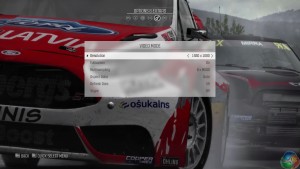
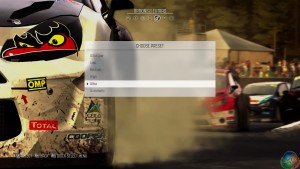
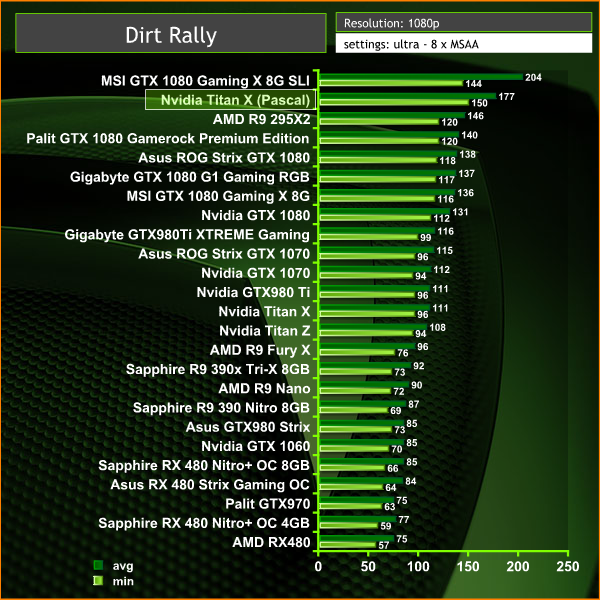
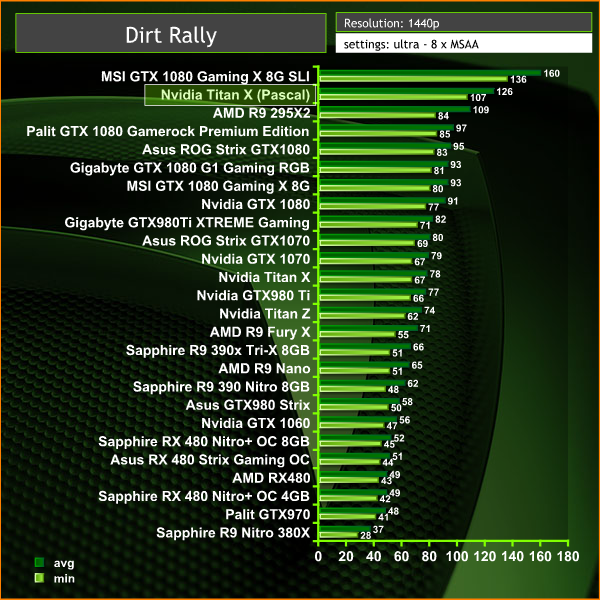
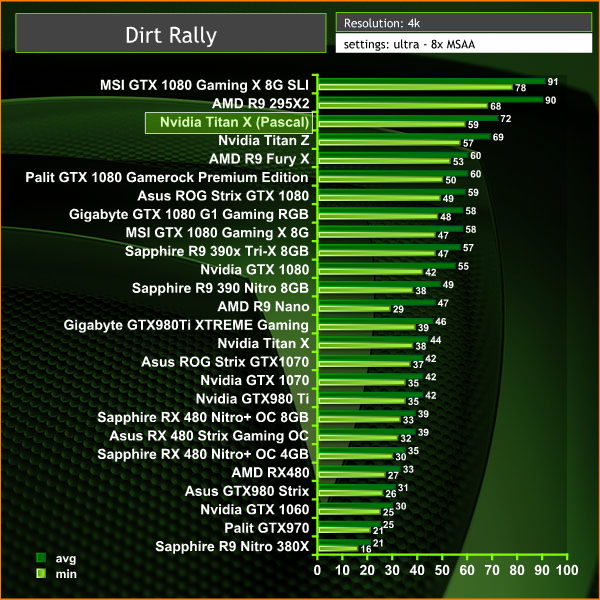

I may be inclined to getting two 1080’s before I ever get a Titan. o,O
Clocks on your overclock seem a bit conservative – I’ve managed to hold a stable +235 core / 675 memory on both cards, giving me a base clock of 1655 and boost to 1770, with a memory clock of 1420, giving me 11300 effective.
Final boost with their boost 3.0 puts me in the 2150-2180 core clock range. Can’t wait to stick waterblocks on them.
and take the wife for supper , damn! 😉
the joys of the silicon lottery I am afraid. I have recently got another Titan X, and it overclocks quite a bit higher.
Yeah it seems I’ve gotten lucky – really lucky in fact, over the last few years. These tx-p’s of mine both top out near 2200 core / 11500 mem, my previous tx-maxwell’s could boost to a shade over 1550 core, and my 5960x can sustain 5.1ghz across all cores @ 1.42v, and I can push a single core to 5.6GHz. Feels like I get danmed lucky, a lot.
Waterblocks for the tx-p’s have become a more complicated problem though – I was planning on going with EKWB for the setup, but it seems the nvidia HB sli bridge the pascal cards use won’t fit with their pascal blocks, so I’ll need another solution there.
It’s kind of crazy to think that if you notice, it took in most cases until the Pascal Titan X and in others the 1080 to beat the 295×2 in a lot of benchmarks. Kind of neat that even if you bought the 295×2 at full retail of $1500USD (in the states) in took two years, a node shrink from 28nm to 16nm, and a Video Card costing $1200 to beat it in a lot of cases.
Are they not benchmarking Doom in Vulkan?
It’s neat that a single card with only around 70% of the shader cores can be equal in performance and consume half the power.
The 295×2 was fast no doubt about it, but by no means was it particularly impressive. Hot as hell, and needed a beastly power supply to feed it. And thats without overclocking.